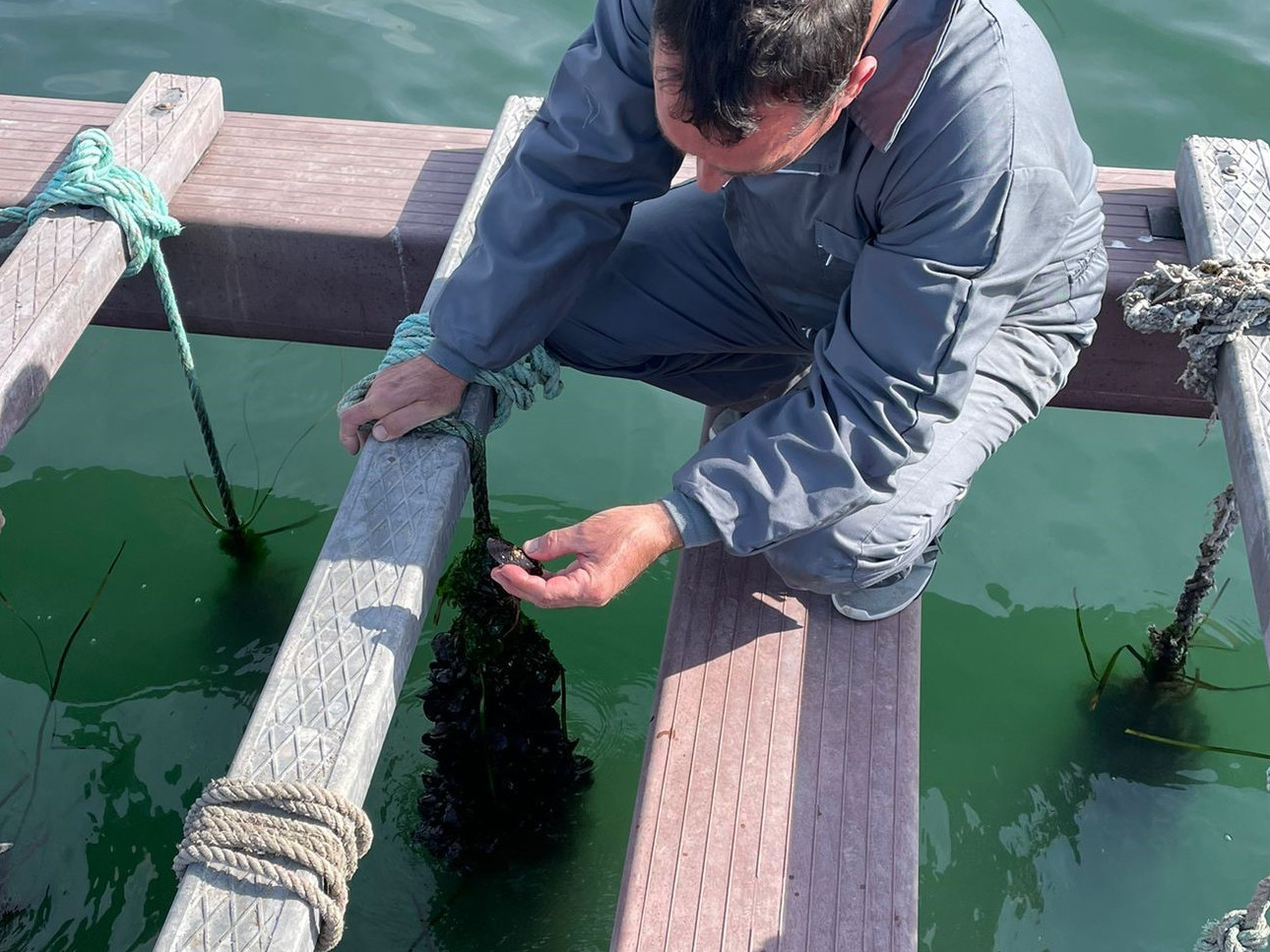
The growth of the EU shellfish sector is going through a stagnation period. Global competition, water saturation, lack of phytoplankton, technical difficulties, intense predation are among the main challenges, preventing this industry to reach its full potential.
To overcome those obstacles, OpenMode project is proposing floating connectable modules for intensive mussels farming in open waters made of Ultra-High Performance Concrete (UHPC). UHPC is inorganic, light, compact and does not require coatings, thus assuring no impact on water quality. Moreover, while traditional wooden platforms last on average 15 years with regular maintenance, OpenMode floating platforms in UHPC can last up to 50 years without maintenance.
Remote sensors control on-site parameters such as water, weather and structure conditions, as well as harvest growth, reducing therefore monitoring and operating costs. These tailor-made modules have been tested in the west coast of Denmark (Limfjorden), in Croatia (Zadar region), Montenegro (Bay of Kotor) and in Spain (Galicia), where local farmers harvest molluscs and microalgae, and learn through trainings how to avoid predation, achieve more phytoplankton and scale-up their businesses.
Do you want to see in practice how the modules work? Check the online training.
OpenMode floatable modules can become an efficient tool to boost coastal community economies and limit, for example, eutrophication in the North and Baltic Seas. The shell of a shellfish absorbs carbon as it grows and mussels filter and improve water quality, proving shellfish aquaculture can be beneficial to the environment. On a longer-term perspective, this system can trigger major investments in concerned coastal regions, generating new jobs in the whole shellfish value chain (purification, processing, packaging and labelling industries).
If the tests prove to be successful, OpenMode structures could be replicated in other regions in Greece, Italy, South of Spain, up to the Atlantic open waters off Africa, or in countries bordering the Baltic Sea. Larger mollusc production could be exported outside national borders, and less renowned species, such as Croatian oysters or mussels could be rediscovered.
To know more about the tests, please check this page.
The project participated at the European Maritime Day event on 20 May 2021 as a speaker in Pitch Stage I "Bringing Blue/Green innovation to market".
The project pitch can be followed here at minute 32:25.
Read more about OpenMode in the European Maritime Forum website
- Reference
- EMFF-BlueEconomy-2018-863562
- Project duration
- 1 Nov 2019 - 31 Oct 2021
- Project locations
- Spain
- Overall budget
- €844 967
- EU contribution
- €549 22865% of the overall budget
- Project website
- OpenMode
Stakeholders
Coordinators
Research & Development Concretes Sociedad Limitada (Spain) (RDC)
- Website
- https://rdconcrete.com/
